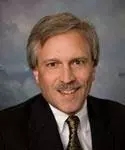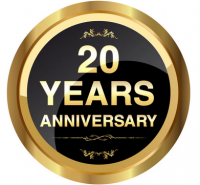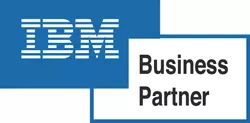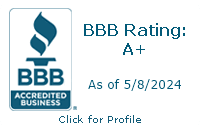August 2009


Sitting here at the start of my third decade in business for myself, I find it a little intimidating to reflect on where I started, how much I've learned along the way, and how many people have guided me. I had always thought I made a lateral entry from auditing to consulting – after all, I was a solid audit manager who happened to excel at creatively using technology to improve the productivity of auditors in the field. But today, 20 years later, I realize I was starting at the bottom of a new profession – management consulting – as well as building a business.
I did not realize any of this on August 1, 1989. It was my first day of self-employment! (Or, as my wife called it, my first day of unemployment.) It was new, exciting, and creative! I was getting to build a new career – a new reality for myself. To me, this wasn't work – it was fun! It was playtime! Experiences would come soon enough, as well as accompanying lessons.
During my first decade, from 1989 to 1999, I learned how to be a consultant – how to secure, perform, report, and wrapup consulting projects – and how to train others to perform consulting services. The firm grew by word-of-mouth referrals. I brought others into the firm to help me deal with the work I was acquiring. In 1992, I hired a part-time office and marketing administrator, who would quickly become my first full-time employee. In 1994, I hired my first part-time consultant, followed 2 years later by my first full-time consultant.
In this first decade, I focused on our operations – this is the discipline of "Operational Excellence," as described in the book The Discipline of Market Leaders. All of us were performing projects and serving clients. I thought technical and operational excellence were enough to sustain the firm. A couple slumps in business taught me the value of consistent and sustained business development efforts.
During my second decade, I began to learn what it took to build a sustainable practice through the discipline of being "Client Intimate." In this period, we began to develop our processes to attract and retain clients, and to grow our book of business. This was a period of intense trial-and-error because so many things were changing all at once – the market for technology-based consulting services, the underlying technologies, and the marketing techniques themselves.
With the benefit of hindsight, I see the many mistakes I made in this period – and I accept I had no choice but to make them, because I was always making the best possible choice I could at the time. In the same situations today, I would make different choices, of course – and that's because virtually all these experiences were evaluated. As leadership author and consultant John C. Maxwell says, "Experience is not the best teacher – evaluated experience is. Reflection turns experience into insight." Everyone has experiences – very few people have evaluated experiences. In 2004, I began to systematically and objectively evaluate these experiences with my accountability partners, bringing insights and clarity formerly impossible.
The second decade was one of intense growth and development for me, because I was learning new skills not aligned with my core strengths AT ALL! I am an introvert, yet my roles require almost nonstop interactions with staff, clients, prospects, and referral sources. I am most comfortable with my technical skills, yet obtaining business requires strong "soft skills" in networking, marketing, and selling. Applying these newly required skills caused frequent stumbles – and out of the painful process of evaluating negative experiences came the most significant period of personal growth and development in my life. The sheer number and variety of experiences early in this decade initially brought frustration and confusion – and eventually, once evaluated, brought acceptance and clarity. Painful? Yes. Worth it? Definitely. I now feel I am truly hitting my stride.
So, from my two decades of evaluated experiences, here are some lessons learned:
- Selling products is hard. Selling services is harder. Selling services delivering business process improvements and supporting software is hardest of all. Selling success in other fields does not translate to our type of practice. Trust me – I've tried various configurations of message, delivery, and person. Ultimately, I had to accept the facts – many attempts were not effective. Creating and delivering a concise message to a prospect, and then inspiring the trust and confidence to turn a prospect into a client – these are hard. Really hard.
- We have a "complex sale." A great book from 2006, read while on vacation that summer, is Lead Generation for the Complex Sale by Brian J. Carroll. In this book, the author not only described what makes a "complex sale" – a product or service having a long sales cycle, requiring education and nurturing of the prospect, centered on a sophisticated solution solving crucial business issues – but also the array of techniques which must be mastered to successfully generate leads for such a sale.
- Consultants are cats, and cats do not like to be herded. Cats are quiet, free-spirited, and independent – so are consultants. That's not to say cats cannot be great pets – they can be, but don't expect them to behave like dogs. People come to the firm because they want some place where they can virtually be their own boss, work flexible schedules, solve interesting problems, be incredibly creative, and deal with great clients and colleagues. They do not fit a predefined mold – they chafe at others' rules, pushing back if they don't like something. Managing a group of talented consultants is hard because you have to equip them...let them roam...and be patient until they drop in or call in every week for a 15-minute check-in with me! (After 2 years of practicing this management technique, they do.)
- We are a meritocracy. This is intimately related to the previous point. Talented, strong-willed people tolerate neither bureaucracy nor autocracy, and they accept that a business is not a democracy. What's left? A meritocracy – an organization where people are rewarded on the basis of their talent and achievement. Seniority doesn't count. Age doesn't count. Compliance with procedures doesn't cut it. So I have to manage people based on their ability to perform specific tasks – knowing full well a person can be a superstar in one area and a complete novice in another. When you have a group of self-actualizing individuals, they look forward to constantly learning new skills – in fact, one way to lose such persons is to let them get bored.
- Hiring smart, hardworking, nice, reliable people is the key to success. About 10 years ago, when I was introducing a new consultant to one of my clients, I was stunned to hear her say, "Todd, I have no doubt this new person will work out great – after all, you're known for having only smart, hardworking, nice, reliable people work with you." Wow – she blew me away! Sometimes it takes an outsider to tell you your key strength.
- Put your people first. How many businesses tout "people are the key to our success" – and then layoff 100 of these "keys to success" just a few weeks later? I've had to let a few people go for various reasons, but I've never laid off a consultant for lack of business. When business has been slow, I do what any responsible entrepreneur does – I pay my staff ahead of myself. They're that valuable – and they are worth treating well.
- Referrals are our lifeblood. Every major client we have ever had came from a referral – somebody knew us. None came from a cold call. Not one. We work hard to stay close to our referral sources – our clients, colleagues, and friends – because being remembered as "the smart, hardworking, nice, reliable people who get business results" is critical when someone has a need.
- Business Development is in our DNA. I've always envied one thing about my audit and tax CPA brethren – their business is built on an annuity stream. My business is based on special projects. I have learned the hard way that constant, consistent business development is non-negotiable, and trial-and-error has yielded the specific mix of networking, marketing, and selling techniques effective for us.
- Books are cheap. Ideas are invaluable. Time for reading and thinking is non-negotiable. What's the price of a typical business book? About $20 after various discounts. What's the value of an idea? Well, the ideas which came to me in 2006 after reading a $20 book, Lead Generation for the Complex Sale, caused me to completely overhaul our marketing approach – to simplify our marketing message and service descriptions, provide concrete examples to make the intangible more tangible, redesign our web site and rewrite all its content, and reprioritize our business development activities. Ideas from this book became reality. I've become adept at picking books which yield good ideas, and then scanning or reading them to mine their gold – and this requires protecting my time for reading and thinking.
- Clients love passion and commitment. This is the moral of Harry Beckwith's outstanding book, What Clients Love: A Field Guide to Growing Your Business. Another $20 treasure trove of ideas, and the greatest of these is this – passion and commitment make the difference. That's why we have always done well when competing with the "big boys" – it's hard for them to match our passion and commitment. To us, failing to deliver a successful project – say, a system implementation – is unacceptable. And we've all heard horror stories of aborted ERP implementations. And most of those failures? A large firm was involved – not a small one.
It's easy to discount the implementation of these lessons, especially when taken individually. Make no mistake – these lessons were hard to learn, and harder still to profitably put into practice. One person who understands how a leader must work to implement such lessons is Rich Schlentz, a friend and colleague. Rich called in March 2009, wanting to meet for coffee to interview me for a book he is writing. We met, and Rich told me he was working on a book about engaged workforces, and he felt I was one of a small group of business leaders committed to building an engaged workforce! And then he wanted to know what I was doing to create such a culture. I told Rich I had set out to build a great business, where I and others could thrive in an atmosphere of trust, respect, creativity, and fulfillment. Little did I realize, the by-product of all this would be an engaged workforce.
What enabled me to get to 20 years was finding a way – a business model – to convert ideas into cash. Ideas to make businesses run better, ideas people trusted me to implement, ideas which brought results, ideas worthy of payment. I now have the best of all worlds – good consultants and staff, who are part of a respected, long-lived consulting firm, all operating under a business model that works.
![]()
Todd L. Herman






